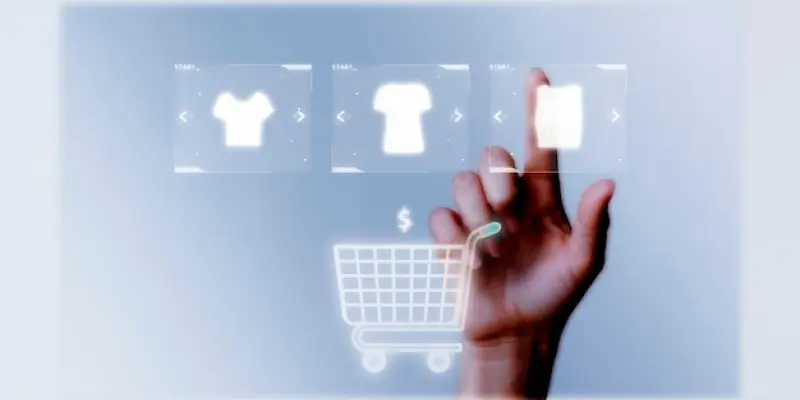The retail landscape has undergone a significant transformation, largely driven by technological advancements that cater to evolving consumer needs. Mobile point-of-sale (mPOS) technology stands at the forefront of this evolution, offering a sophisticated solution that reshapes traditional shopping experiences. This innovation has not only streamlined operations but also empowered retailers to offer more personalized and efficient services. In an era where consumer expectations are constantly rising, mPOS technology has become a crucial tool for retailers aiming to gain a competitive edge. It serves as a bridge between online and in-store transactions, ensuring a seamless and integrated experience for customers. With its ability to leverage real-time data and provide insights into purchasing behaviors, mPOS represents a pivotal shift in how retailers approach customer engagement and operational efficiency.
The Role of mPOS in Adapting to Market Dynamics
In the constantly shifting economic landscape, retailers face the challenge of adapting to market dynamics to remain competitive. mPOS technology has emerged as an invaluable asset in this context. It enables businesses to swiftly respond to fluctuations in consumer behavior and market demands. By integrating cloud processing, artificial intelligence, and machine learning, mPOS offers retailers the capability to optimize operations and improve decision-making processes. These advanced technologies allow for secure transactions while providing real-time insights into purchasing patterns and inventory management, thereby equipping retailers with the tools needed to make informed decisions.
In markets characterized by economic instability and currency fluctuations, like South Africa, the resilience of the retail sector is often tested. However, the integration of mPOS technology has allowed businesses to efficiently navigate these challenges by offering more agile and adaptive strategies. During high-demand periods, such as Black Friday and holiday seasons, mPOS proves especially advantageous, enabling retailers to manage customer traffic more effectively and capitalize on opportunities that arise during these peak shopping times. The technology’s ability to facilitate rapid in-aisle transactions and provide access to comprehensive product catalogs enhances the overall shopping experience, thus fostering customer loyalty and boosting sales.
Enhancing the In-Store Experience
Despite the growing prevalence of e-commerce, the tangible and interactive nature of in-store shopping continues to hold significant appeal for consumers. The resurgence of in-store retailing has been notable, and mPOS technology plays a pivotal role in this revival by enhancing the shopping experience in physical locations. One of the primary benefits of mPOS is its ability to reduce waiting times, a critical factor in improving customer satisfaction. By streamlining checkout processes, mPOS not only keeps queues short but also allows sales associates to engage with customers more effectively during their shopping journey.
Moreover, the implementation of mPOS technology enables retailers to offer a more personalized shopping experience, akin to what consumers encounter in digital spaces. By leveraging customer data, retailers can tailor recommendations and offers, leading to a more engaging and customized interaction. This level of personalization helps bridge the gap between online and physical retail, creating a cohesive and seamless experience for the consumer. Additionally, the optimization of retail space through mPOS is an advantage, as it reduces the need for extensive hardware installations, freeing up valuable floor space for product displays and customer interactions.
Data-Driven Retail Decisions and Scalability
The ability to gather and analyze data effectively has become a cornerstone of successful retail strategies. mPOS technology drives this data-centric approach by providing retailers with actionable insights that inform inventory management, promotional strategies, and customer service enhancements. The real-time data collected through mPOS systems allows for precise tracking of sales trends and customer preferences, empowering retailers to make informed decisions that align with consumer demand. This data-driven approach not only optimizes operations but also fosters a culture of continuous improvement within retail environments. Another advantage of mPOS technology is its scalability and accessibility. Unlike traditional point-of-sale systems that require extensive infrastructure, mPOS solutions are readily available to businesses of all sizes. This democratization of technology levels the playing field, enabling small and mid-sized retailers to offer rich, personalized in-store experiences comparable to those of larger enterprises. As the demand for integrated shopping experiences grows, mPOS technology provides a scalable solution that evolves alongside market trends and consumer expectations, ensuring that retailers remain competitive and relevant in an ever-changing landscape.
Future Considerations and Implementation
In today’s ever-evolving economic landscape, retailers must adapt to remain competitive. Mobile point-of-sale (mPOS) technology has become an essential tool for businesses, allowing them to keep up with changes in consumer behavior and market demands. By incorporating cloud technology, artificial intelligence, and machine learning, mPOS empowers retailers to enhance their operations and decision-making processes. These technologies ensure secure transactions while offering real-time insights into customer buying patterns and inventory, aiding retailers in making informed decisions about stock and sales strategies.
In economies marked by instability and fluctuating currencies, such as South Africa, the retail sector’s resilience is frequently put to the test. The integration of mPOS technology allows businesses to handle these challenges with agility and adaptability. During peak shopping times, like Black Friday and the holiday season, mPOS is particularly advantageous in managing customer flow and capturing sales opportunities. This technology streamlines in-aisle transactions and offers access to extensive product catalogs, enriching the shopping experience, fostering customer loyalty, and driving sales.

